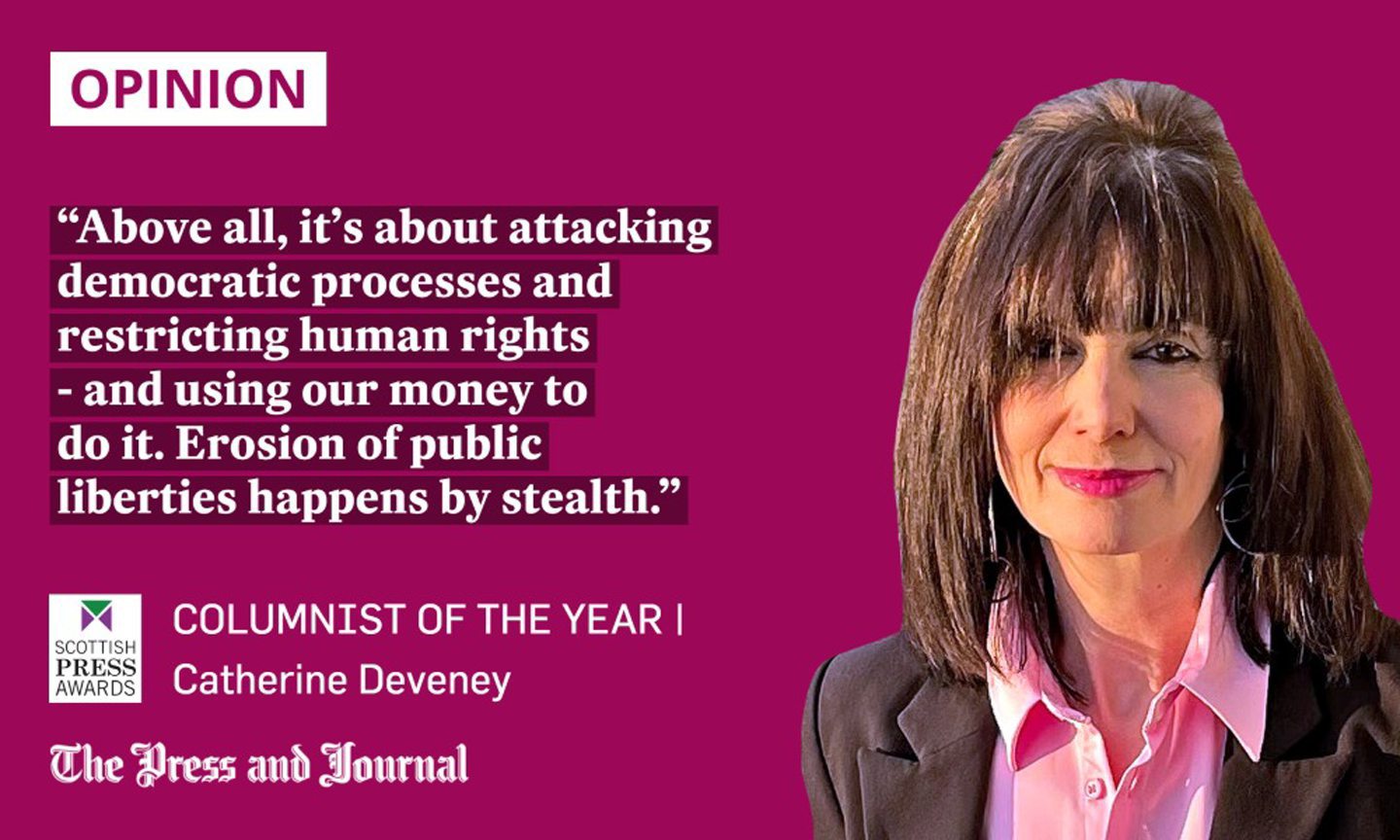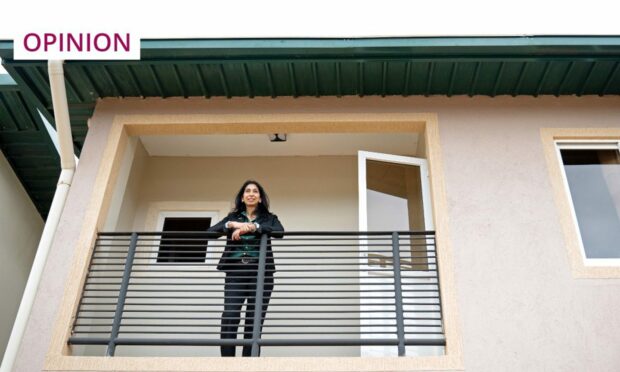In the grand scheme of things, news that the recent taxpayer-funded jolly to Rwanda excluded both the BBC and The Guardian might be dismissed as merely petty political pique.
Home Secretary Suella Braverman was pictured playing Tupperware hostess in her toytown empire of homes that took a whole two weeks to build, but did not want any protesters pointing out the plasticity of what she was flogging. It’s my party and you’re not coming! Go away! Sadly, it is so much more sinister than that.
The Tory-supporting Telegraph, Daily Mail and GB News were Braverman’s choice of media companions. Why does that matter? Because the intention is to control public narratives and suppress dissent – a problem in any democracy. Particularly when the government oscillates between demanding “neutrality” from state broadcasters on one hand, and supine loyalty from their media mates on the other.

Last Saturday, The Telegraph’s reporting from Rwanda read like a ghastly puff piece for an interior design magazine, the “news” line being the utter gorgeousness of the refugee blocks. “Viewing the wooden panelled interior of one two-bedroomed home with its beige velvet sofa and floral pink scatter cushions, Mrs Braverman said: ‘These houses are really beautiful, high quality, welcoming and I quite like your interior designer. I need some advice myself.'”
Oh, bless. Never mind the Amnesty International report on Rwanda which says: “Violations of the rights to a fair trial, freedom of expression and privacy continued, alongside enforced disappearances, allegations of torture and excessive use of force.” They have scatter cushions! Pink! Floral! What’s not to love?
Boris and Carrie Johnson may once have cost the taxpayer over £200,000 with their penchant for Lulu Lytle gold wallpaper, but Suella embraces George at Asda.
The government is limiting your rights, too
If you are fed up hearing about small boats, migrant invasions, Gary Lineker, refugee status, BBC neutrality, deals with France to prevent the crossings, deals with Rwanda to create a human dustbin for disposable people, or even outrage from the president of the Congo over the UK’s willingness to deal with Rwanda considering its appalling human rights abuses, then think about this instead: the government is restricting not just the human rights of refugees. It is restricting your rights, too.
It is not merely their efforts to control the flow of information, but to exert pressure on the independence of the courts.
The home secretary will be departing for Kigali on Friday evening, accompanied by media representatives from outlets including GB News, the Daily Mail, Times, Express and Telegraph
The BBC, The Independent, The Guardian, Daily Mirror and i were not invited
— Lizzie Dearden (@lizziedearden) March 16, 2023
This week, there have been “negotiations” to limit the courts’ ability to halt flights to Rwanda. Asked if it was possible that the UK would leave the European Court of Human Rights if European judges blocked the new legislation, Braverman said: “Nothing is off the table, ultimately.”
No surprises there. Despite claiming Brexit would not be detrimental to our civil liberties, the Conservatives have consistently attempted to dismantle existing legislation and replace it with a weaker bill of human rights. How fitting that the attempts have been spearheaded by Dominic Raab, yet another cabinet minister accused of bullying behaviour. This government believes not just in spin, but in strong-arming.
Attacking democratic processes and restricting human rights
The Law Society is against the Tory proposals on human rights. Amnesty International is against the proposals. And, in a consultative process, 90% of the public were, too. But, if they can’t win the game, those leading this government change the rules. If they can’t change the rules, they appoint a new referee to interpret them differently. If the new referee doesn’t interpret them to order, they pick up the ball and walk off. Game over.
So, no, this is not just about refugees. It’s about corruption and self-interest in public service. It’s about controlling information and attempts to gag the BBC and Channel 4.
It’s about crass uses of public money, not just in taking the Chosen Ones to Rwanda for an expensive party political broadcast, but in paying Boris Johnson’s £220,000 lawyers’ bill in preparation for his evidence to the privileges committee this week. My, doesn’t it take a lot of expensive, legal brilliance to tell the truth?
Erosion of public liberties happens by stealth. In Britain, there’s no longer much stealth about it but, in response, there’s an increasingly dangerous public apathy
It’s also about government intervention in the Shamima Begum case, using an exploited 15-year-old as collateral damage in a supposed “war on terror”, something Conor Gearty, professor of law at London School of Economics, says showed “a determination to defer to the widest possible extent to government on the grounds of national security, as well as a lack of any moral urgency in relation to the alleged breaches of Begum’s core human rights.”
Above all, it’s about attacking democratic processes and restricting human rights – and using our money to do it. Erosion of public liberties happens by stealth. In Britain, there’s no longer much stealth about it but, in response, there’s an increasingly dangerous public apathy.
Human Rights Watch’s uncompromising verdict should waken us all up. “The UK Government,” its 2022 World Report states, “pursues laws and policies with little regard for their impact on human rights.” Amen to that.
Catherine Deveney is an award-winning investigative journalist, novelist and television presenter, and Scottish Newspaper Columnist of the Year 2022

Conversation